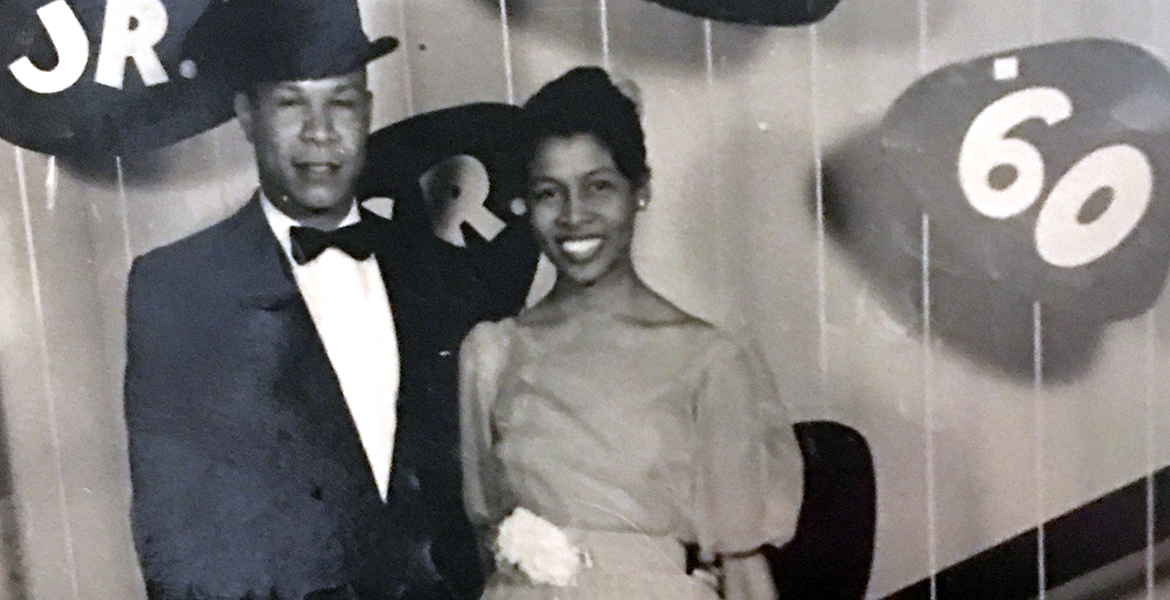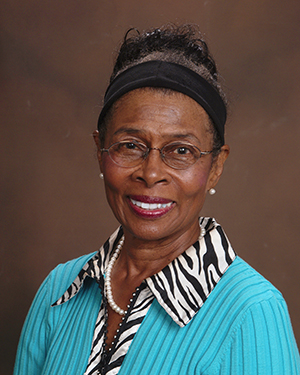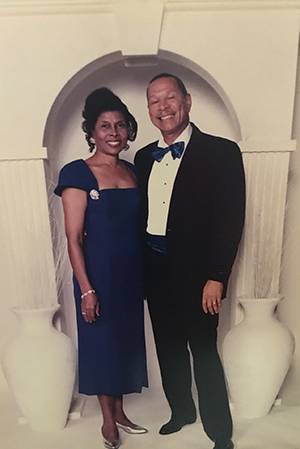
Business Groundbreakers: Patricia Tilford
Thursday, July 23, 2020
Equal education’s legacy
We often celebrate visionaries and groundbreakers who stand their ground in the face of opposition and adversity. This story is one of three that introduces us to women who attended Oklahoma State University at times when respect and inclusiveness were not equally offered to all people.
Leaving home for the first time to attend college is exciting, emotional and sometimes scary. For Patricia Tilford, leaving her hometown of Tulsa to start her freshman year at Oklahoma State University 65 miles away was beyond emotional, considering the social upheaval the United States faced in the 1950s. A 1956 graduate and valedictorian of segregated Booker T. Washington High School in Tulsa, Tilford began her studies at the OSU business college on a campus integrated only a few years earlier.
“It was a little scary for me because I had never been in a [racially] mixed situation like that before,” Tilford said. “Everybody at Tulsa’s Booker T. Washington was African American. So [at OSU], I’m in a new world altogether.”

Tilford found herself witnessing unprecedented change in the nation as the drive to desegregate public schools accelerated following the landmark 1954 U.S. Supreme Court decision in Brown v. Board of Education. The court’s ruling ended “separate but equal” educational facilities for blacks and whites.
Desegregation was still met with often violent opposition around the country. Black and white college students navigated new social norms as universities like OSU worked to make sure African Americans received a truly equal education.
In 1949, Nancy Randolph Davis became the first African American student to enroll at OSU, then called Oklahoma A&M College. By the time Tilford arrived on campus in 1956, black students were at home throughout OSU classrooms and residence halls, but a fear of not being accepted remained. Tilford recalls most white OSU students welcomed their African American classmates.
“The campus and the students, for the most part, were very friendly,” Tilford said. “I don’t remember ever being put down. In fact, I don’t think the people in the business college would have allowed that to happen.”
Tilford, a secretarial administration student, said the support of the school’s administrators, faculty and staff, including Dean Eugene Swearingen and advisor Dr. James Silverthorn, made it possible for her to graduate with a bachelor’s degree in 1960.
Silverthorn helped Tilford land her first job as a secretary and stenographer at Tinker Air Force Base in Oklahoma County. He even visited her on the base to “make sure they were treating me right,” she recalled.

Tilford also met her future husband, Kermit Tilford, an industrial arts education major and military veteran from McAlester, Oklahoma, at OSU. The two married on Sept. 30, 1961, and the next day the U.S. Army recalled Kermit to active duty as the Cuban Missile Crisis intensified.
Wanting to teach business, Patricia Tilford returned to OSU in 1976 to earn her teaching certificate and a master’s degree in business education, graduating in 1978. She taught for two decades at Sapulpa (Oklahoma) High School before retiring. Her husband was an administrator at the school.
Higher education, especially at OSU, has been a hallmark of the entire Tilford family. Kermit, who had graduated with a bachelor’s degree from OSU, went on to earn a doctorate in education from OSU after being hired as the assistant superintendent for the Sapulpa school system to help administer its desegregation program. But success at OSU didn’t end there. The couple’s three children, Kermit Tilford Jr., Bernadette Tilford and Milessa Tilford- Rutherford, all graduated with engineering degrees from Oklahoma State.
Now in retirement, the Tilfords live in the Houston area close to their children and grandchildren. As a first-generation college student, Patricia Tilford said her mother’s experiences growing up in Tulsa and surviving the 1921 Tulsa Race Massacre had much to do with her pushing her daughter to go to college. Tilford said her mother, who worked most of her life cleaning the homes of white Tulsans, wanted more for her daughter.
“At Booker T. Washington High School, we girls were required to take home economics because most of us were going to end up being maids,” Tilford said. “But by the grace of God and my mother wanting me to go to college, other doors were opened to me, and those doors were opened for my kids, too. I am really humbled by that.”
For the 100th anniversary of business education at OSU in 2014, Tilford was one of the school’s “Spears School Tributes: 100 for 100” alumni honorees.
MEDIA CONTACT: Jeff Joiner | Communications Coordinator | 405.744.2700 | jeff.joiner@okstate.edu
